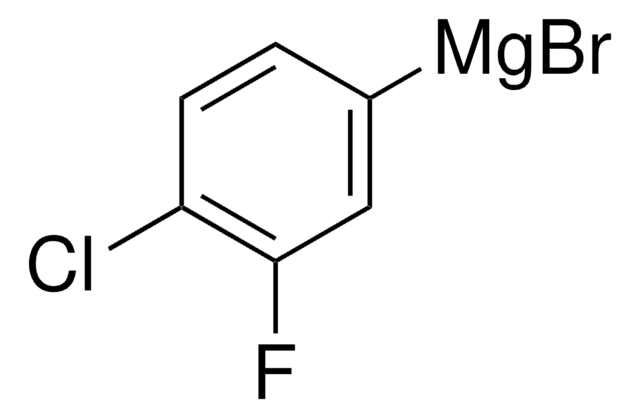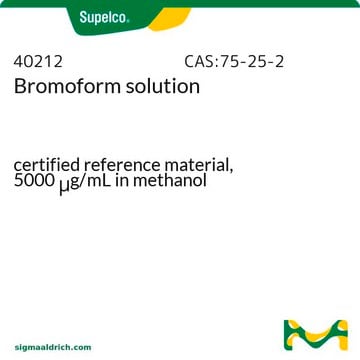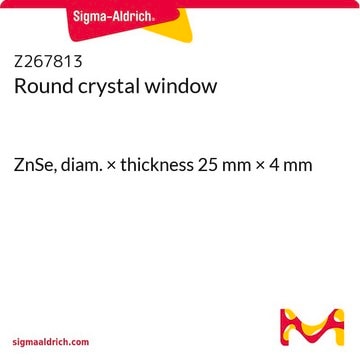48608
Dibromochloromethane solution
certified reference material, 200 μg/mL in methanol
About This Item
Produits recommandés
Qualité
certified reference material
TraceCERT®
Agence
EPA 601
Gamme de produits
TraceCERT®
CofA (certificat d'analyse)
current certificate can be downloaded
Caractéristiques
standard type calibration
Conditionnement
ampule of 1 mL
Concentration
200 μg/mL in methanol
Technique(s)
HPLC: suitable
gas chromatography (GC): suitable
Application(s)
environmental
Format
single component solution
Température de stockage
2-8°C
InChI
1S/CHBr2Cl/c2-1(3)4/h1H
Clé InChI
GATVIKZLVQHOMN-UHFFFAOYSA-N
Vous recherchez des produits similaires ? Visite Guide de comparaison des produits
Application
Informations légales
Mention d'avertissement
Danger
Mentions de danger
Conseils de prudence
Classification des risques
Acute Tox. 3 Dermal - Acute Tox. 3 Inhalation - Acute Tox. 3 Oral - Flam. Liq. 2 - STOT SE 1
Organes cibles
Eyes,Central nervous system
Code de la classe de stockage
3 - Flammable liquids
Classe de danger pour l'eau (WGK)
WGK 2
Point d'éclair (°F)
49.5 °F - Solvent
Point d'éclair (°C)
9.7 °C - Solvent
Choose from one of the most recent versions:
Déjà en possession de ce produit ?
Retrouvez la documentation relative aux produits que vous avez récemment achetés dans la Bibliothèque de documents.
Notre équipe de scientifiques dispose d'une expérience dans tous les secteurs de la recherche, notamment en sciences de la vie, science des matériaux, synthèse chimique, chromatographie, analyse et dans de nombreux autres domaines..
Contacter notre Service technique









